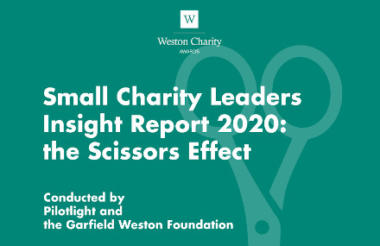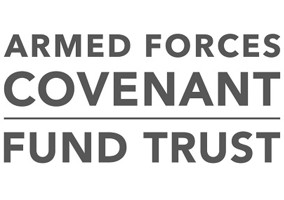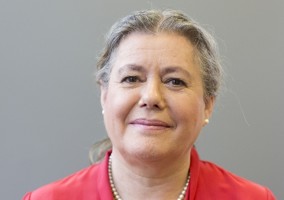ACEVO boss Vicky Browning has warned that sector leaders “are under huge strain”, as survey data reveals the mental health challenges facing some small charities.
Nearly two-thirds of leaders at small charities said that they worried about the impact of “stress and mental ill health” on their staff, in a survey of 257 organisations published by Pilotlight and the Garfield Weston Foundation.
Ed Mayo, the chief executive of Pilotlight, said the survey showed that the coronavirus pandemic had “drained income, resources and capacity” from the work of small charities.
Worries for staff and stress
Some 65% charity leaders in the survey named stress and poor mental health in their workforce as a personnel issue.
It was a more widespread concern than ensuring staff maintained and developed skills (61%), making sure employees and volunteers were able to collaborate remotely (49%), or involving people with lived experience at the charity (38%).
However, only one in four bosses said that trustee boards had asked about their own mental health.
All the charities surveyed had an income under £5m a year, and 70% had an income under £500,000.
The report said that “small charity leaders should not be expected to feel confident in tackling this issue alone, even for those lucky enough to have specialist HR or mental health skills in house”.
Browning, quoted in the report, said: “Charity leaders are under huge strain, now more than ever. This means it has never been more important that chairs and trustees ask chief executives and charity leaders about their mental health.
“Nor has it ever been more crucial that charity leaders do not forget about their own development and seek out relevant opportunities. If they fail to invest in themselves, they fail to invest in their organisations.”
Reserves
The report also found that around six in 10 survey respondents had been forced to use their financial reserves to make it through the year.
Just over a third said that they had not had to dip into their reserves yet.
More than one in 10 said they think it will take three years or more to restore their charity to the same size and strength it went into the crisis.
Two-thirds of respondents also expect to help more people in 2021 compared with 2020, creating what the report calls the “scissor effect” as demand for services rises at the same time that income falls.
2019 has taken its toll
Mayo said: “What makes the scissors effect so concerning is that 2021 comes after a year which has already drained income, reserves and capacity across so many small charities.
“The toll is evident in our finding that mental health is the number one concern at work for small charity leaders.
“Even so, the charity sector is resilient, more so than it sometimes gets credit for, and we want to pay tribute to the long hours, resourcefulness, tireless service and enduring hope that we see in so many small charity leaders.”
The survey had been released to coincide with a call for applications for the 2021 Weston Charity Awards, through which small charities can win leadership support from Pilotlight and an unrestricted grant worth £6,500.
Related articles












